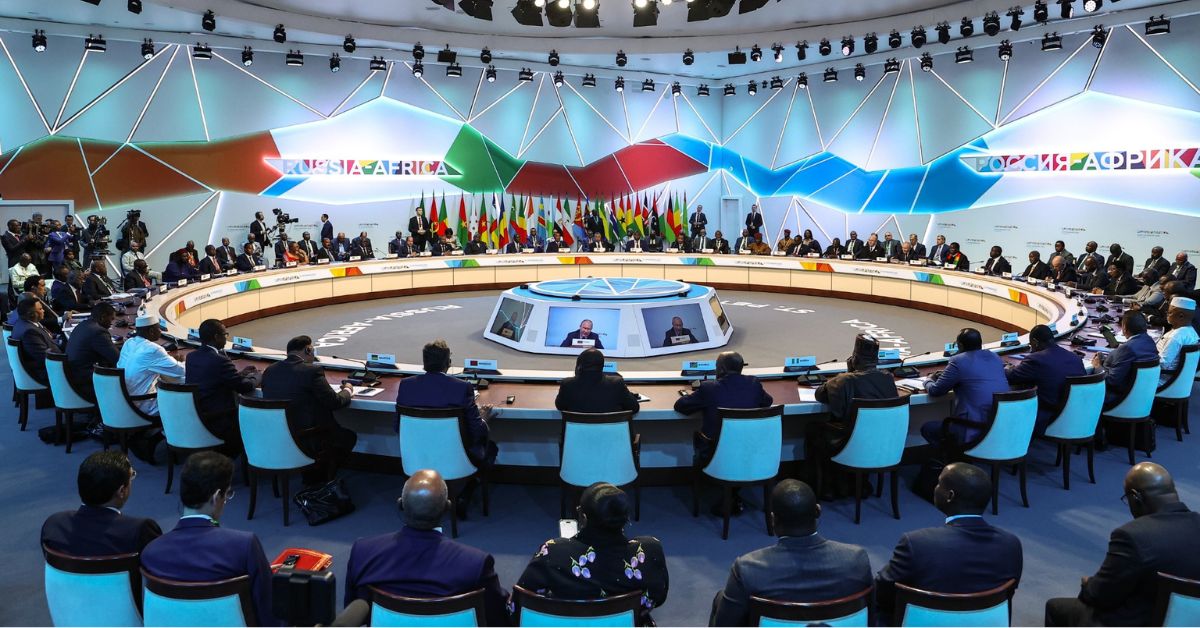St Petersburg, Russia — Traditionally strong bonds of friendship and close and mutually beneficial relations link Russia and Africa. Their foundations were laid in the mid-20th century during the struggle of the African continent’s peoples for their freedom.
For decades, we invariably provided support during the African countries’ difficult fight against colonialism. Unfortunately, some manifestations of colonialism have not been eradicated to this day, and former colonial powers still practice them, including in the economic, information and humanitarian spheres.
Russia remembers and cherishes the memory of Africa’s outstanding sons. I will name them, friends. We must remember them, and we must never forget them. I will name Patrice Lumumba, Gamal Abdel Nasser, Nelson Mandela, Ahmed Ben Bella, Omar al-Mukhtar, Kwame Nkrumah, Samora Machel, Leopold Senghor, Kenneth Kaunda and Julius Nyerere. We also remember other African freedom fighters and national leaders of African countries. While relying on the principles of justice and equality, they staunchly promoted independent development for their nations, often sacrificing their lives.
These ideals of freedom, independence and sovereignty are also very important now in the difficult period of international turbulence, when a truly multipolar world order is evolving and the era of domination by one country or a group of countries is coming to an end. However, those who are used to their exceptionalism and monopoly in global affairs are resisting this. Therefore, it is no coincidence that the theme of the second Russia-Africa Summit is For Peace, Security and Development, and that the summit is not only focused on the further development of Russian-African strategic cooperation but also on the pivotal issues of global and regional stability, sustainable development of the continent, and the strengthening of all aspects of African countries’ sovereignty.
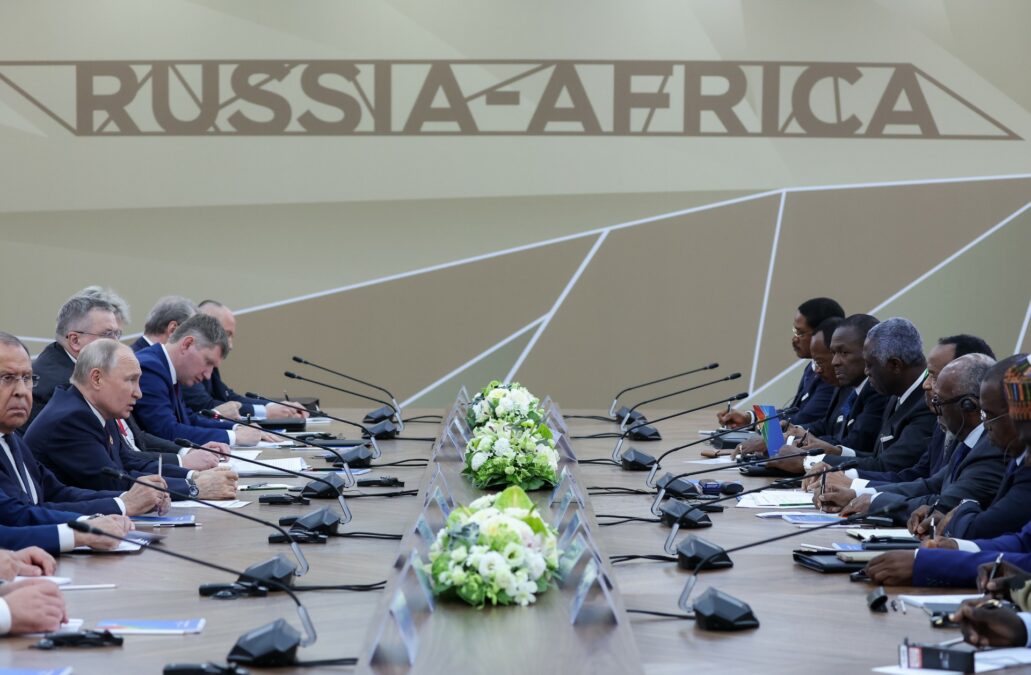
Russia and African states call for building a new, fairer global architecture, are working together to protect international law, the UN Charter and the central role of that global organization and are trying to coordinate their positions on the main issues on the international agenda. It is notable that our positions on many issues are very close or fully coincide. This can be discerned from the main provisions of the political declaration, which has been prepared for approval at the summit.
Russia and African countries are strengthening cooperation in preventing the proliferation of the terrorist threat and in responding to information security challenges. We stand together against the use of the climate change and human rights issues and the so-called gender agenda for unsavory political purposes. We also reject unlawful practices such as unilateral sanctions and restrictive but actually punitive measures, which harm the countries that pursue independent policies, create global economic problems and hinder development.
Naturally, we do not accept the replacement of international law with the so-called rules-based order, which some countries have declared and which they keep changing, transforming and juggling with. Overall, it is not clear what these rules are and who formulated them. But it is clear that certain countries are using them for their own mercenary interests and adjusting them to the political situation.
Importantly, Russia and Africa share the inherent commitment to standing up for genuine sovereignty and the right to follow their own unique development path in the political, economic, social, cultural and other areas. However, this aspiration to independence and sovereignty does not mean self-isolation. On the contrary, it implies being open to cooperating with free nations and states who are equals and enjoy the same rights.
Sovereignty cannot be viewed as something that can be achieved once and for all. It is something that you must fight for all the time. In this connection, I would like to recall the words of Nelson Mandela who said: “Do not judge me by my successes, judge me by how many times I fell down and got back up again.” The same goes for state sovereignty: it must be protected at all times – giving up on it or taking a step back under external pressure is not an option. The aspiration for independence entails standing up for one’s sovereignty and proactively contributing to the emergence of a multipolar system based on the equality of states. I am confident that there is solidarity on this matter between Russia and African countries.
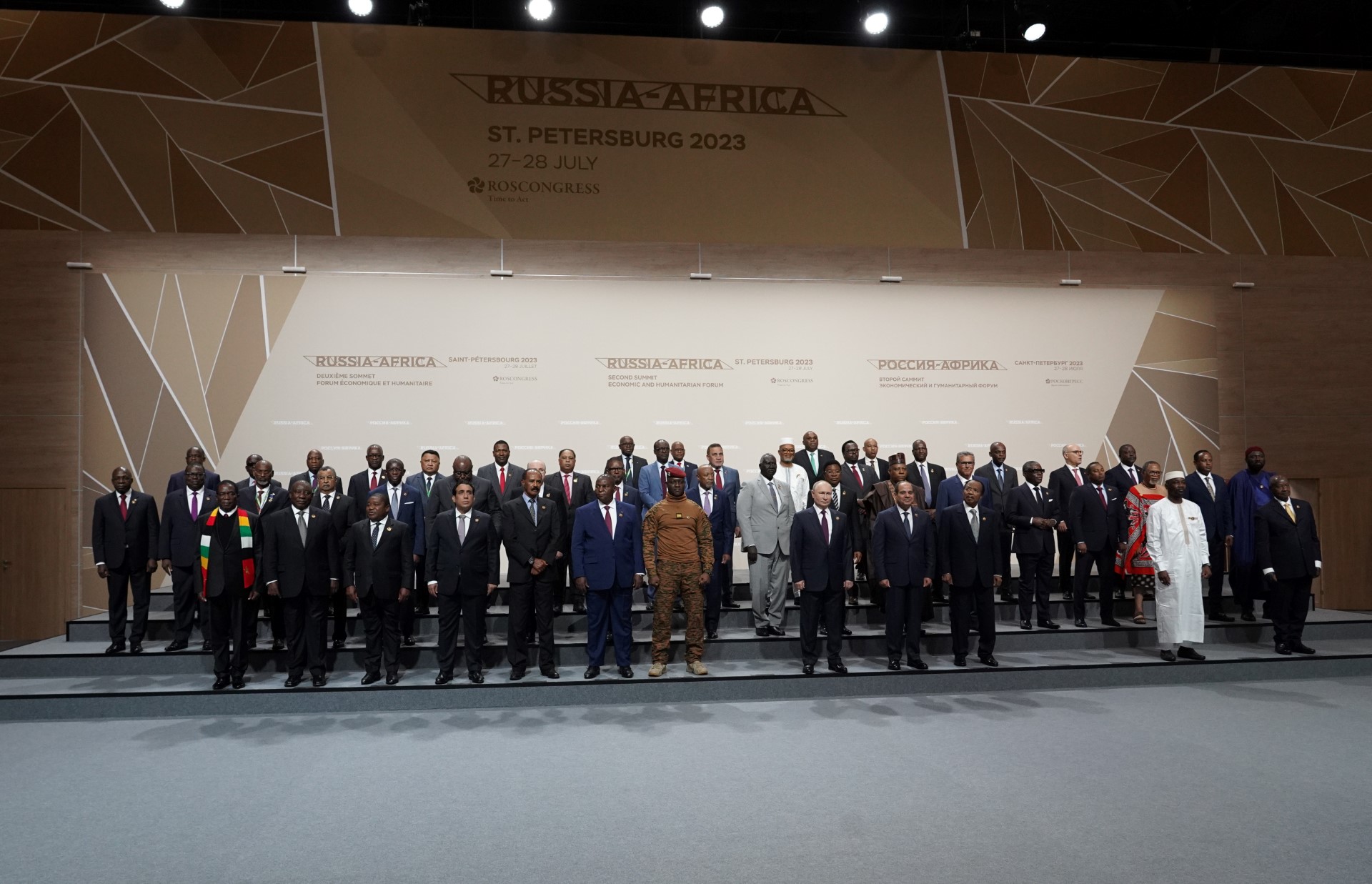
I would like to note that the African continent is emerging as a new center of power right before our eyes. It has been demonstrating exponential growth in terms of its political and also economic roles. Everyone will have to reckon with this objective reality.
Ukraine crisis
Take, for example, the initiative by several African countries to resolve the Ukraine crisis. This is an urgent issue and we have never sought to avoid discussing it. The very existence of this initiative is quite telling since the so-called developed democracies used to hold a monopoly when it came to undertaking mediation missions of any kind. But this is no longer the case, and now Africa is ready to help bring about solutions to problems which may seem to lie outside of its immediate sphere of interests. We respect your initiatives and have been diligent and attentive when examining them.
African regional structures have substantially enhanced their profiles. This primarily applies to the African Union, which represents the voices and aspirations of the entire macroregion. Russia proactively supported the initiative to grant the African Union membership in the Group of 20. This would be the right decision reflecting the reality and the balance of power in today’s world.
We are open to working with other regional integration associations in Africa too. Yesterday, we held a special meeting with their senior executives and put forward the initiative to promote cooperation between the Eurasian Economic Union and the African Continental Free Trade Area within the African Union. This would enable us to explore opportunities for ensuring connectivity between the integration processes carried out by these organizations.
Of course, we share the African countries’ aspiration to be more involved in the activities of the United Nations. We note the active position of the African Union on this.

We are ready to consider, in practical terms, proposals for expanding the representation of African structures, and Africans in general, in UN bodies, including in the context of the reform of the Security Council currently under development. We believe that the time has come to correct the historical injustices afflicted on the African continent.
We also must admit that the situation in many regions of Africa is still unstable. Ethnic conflicts have not been resolved, and acute political and socioeconomic crises persist. This, of course, is a heavy legacy of the colonial era, the “divide and rule” course that the Western metropolises pursued in Africa.
The development of the continent is hampered by terrorism, the spread of extremist ideology, transnational crime, and piracy. Russia also offers its assistance in countering these threats. We are interested in the closest cooperation between Russian and African law enforcement agencies and special services.
Defense relations
We intend to continue training the military personnel and law enforce officers of African countries in Russian specialized educational institutions. Today, military personnel from many African countries are studying at the universities of the Russian Defense Ministry.
In order to strengthen the defense capabilities of African countries, we are developing partnerships in the military and military-technical fields. Russia has concluded military-technical cooperation agreements with more than 40 African countries, to which we supply a wide range of weapons and equipment. Some of these deliveries are carried out free of charge in order to strengthen the security and sovereignty of these countries.
Our African colleagues take an active part in military-technical forums and exercises held by Russia, where they get acquainted with samples of advanced weaponry, military equipment, and its use.
In general, Russia’s attention to Africa is steadily growing, which is evident in our plans to increase our diplomatic presence on the continent. We are ready to restore and open new Russian foreign missions and to increase the staff at a number of existing embassies. This is a real practical step towards significantly intensifying our work with African countries in the political, business and humanitarian spheres, as well as in culture and tourism.
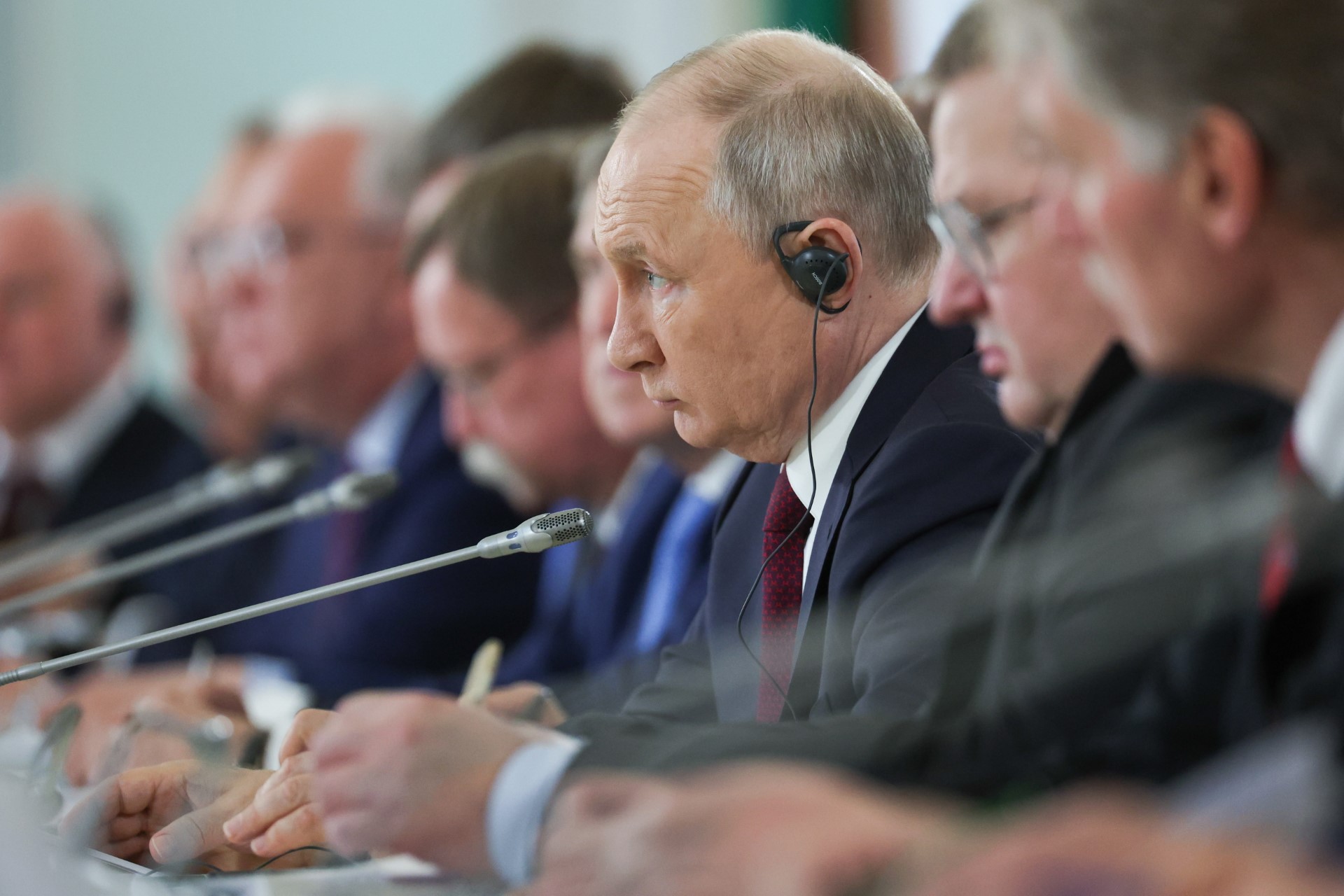
For example, after a multi-year hiatus, Russian embassies in Burkina Faso and Equatorial Guinea will soon resume operation. We are also planning to expand the network of Russian centers of science and culture, or Russian Houses, as they are also known. They are already working successfully in eight African countries and will soon open in a number of other countries.
For our part, we would welcome reciprocal steps by our African friends and will support the opening of new embassies, consulates and other representative offices of African countries.
Cooperation
A few words about economic and humanitarian cooperation with Africa. The forum held yesterday showed that both Russia and African countries really want to strengthen cooperation in these areas. And I can tell you frankly, our entrepreneurs have much to offer our partners from Africa.
Despite the difficult conditions in global markets, trade with Africa is steadily growing. It is clear that the current level is far from the limit. In absolute terms, expanding trade is a goal that we should have set for ourselves. It remains quite modest for now. A more energetic transition to national currencies in settlements and the establishment of new transport and logistics chains will contribute to the growth and diversification of Russian-African trade.
Realizing the importance of an uninterrupted food supply for the socioeconomic development and political stability of African states, we are increasing agricultural supplies to Africa. Thus, in 2022, 11.5 million tons of grain were delivered to African countries, and in the first six months of this year alone, we supplied almost 10 million tons. This is despite the illegal sanctions imposed on our exports, which seriously hinder the supply of Russian food, complicate transport logistics, insurance and bank payments.
Let me emphasize once again: I can assure you, friends, that Russia will always be a responsible international supplier of agricultural products. We will continue to support the countries and regions most in need. We will supply them with our grain and other food products, including free of charge and within the framework of the UN World Food Program.
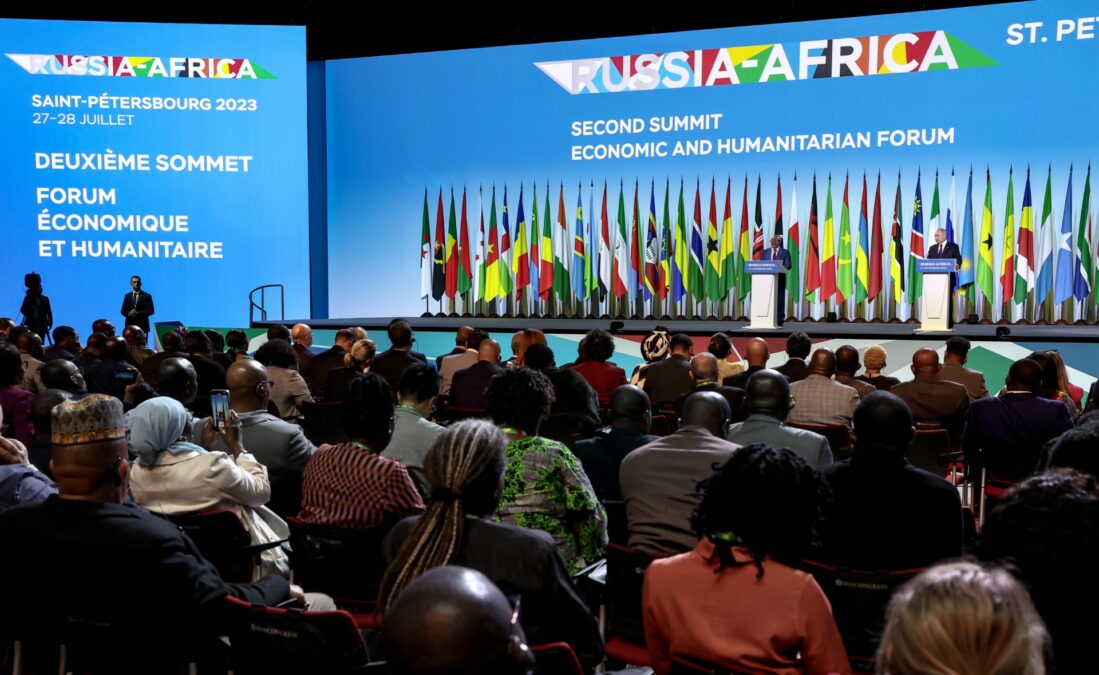
Yesterday, as you know, we announced plans to deliver to six African countries between 25,000 and 50,000 tons of grain each at no cost.
Overall, Russia upholds its commitment to facilitating development of the African continent in all possible ways by not only delivering humanitarian aid there, but also through trade preferences, helping to create modern manufacturing sectors, develop agriculture and assist Africa through specialized international bodies and agencies.
In particular, between 2020 and 2023 Russia carried out 11 bilateral humanitarian initiatives in 10 African countries. We were among the first to help African countries during the coronavirus pandemic by shipping millions of test kits for free, delivering mobile medical laboratories, and equipping a center specialized in studying infections.
Russia also contributes to efforts to ease the debt burden African countries are facing. The total debt Russia has canceled so far stands at $23 billion. We will allocate over 90 million more for development purposes at the request of African countries.
In conclusion, I would like to emphasize once again that we are sincere in our commitment to working together with our African friends to promote a forward-looking vision, genuine strategic cooperation, and partnership. We value our relations with each African country and the continent as a whole and are certain that these relations have a bright future in the emerging multipolar world.
Vladimir Putin serves as the President of Russia. These are edited excerpts from his speech, delivered during the plenary session of the second Russia–Africa Summit in St Petersburg, Russia.
The opinions expressed are those of the speaker and may not reflect the editorial policy or an official position held by TRENDS.


